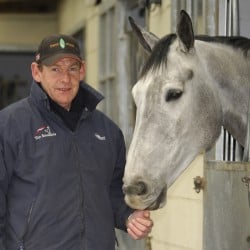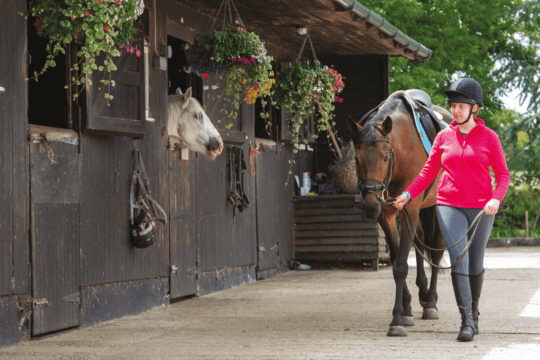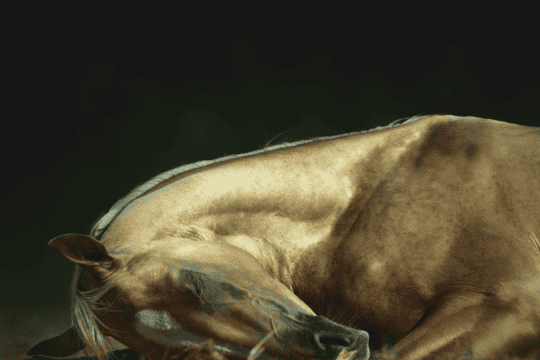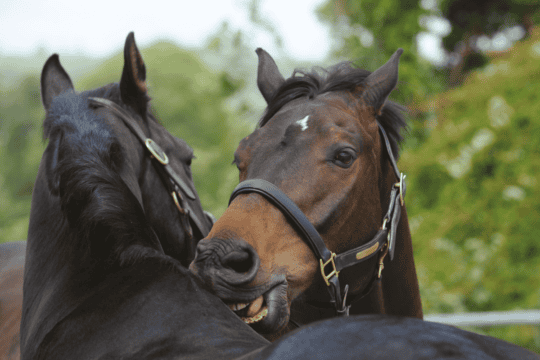Firework season’s rapidly approaching but what can you do to make it a happy one for your horse? The British Horse Society’s Des Payne answers your questions
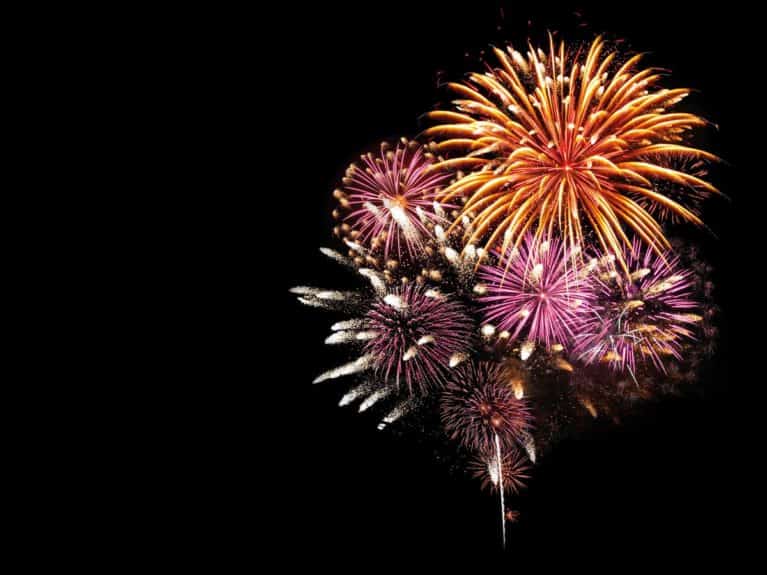
Horses and fireworks definitely don’t make the best combination – the unusual, loud noises and flashing lights can upset even the quietest of equines. While there are increasing calls to reduce the public’s access to the brightly coloured pocket rockets, with our four-legged friends’ welfare at heart, what can you do in the meantime to keep your horse calm? With firework season on the horizon – which seems increasingly to stretch from pre-Guy Fawkes Night to the new year – here’s how you can proactively prepare your horse to keep the experience stress free.
How can I acclimatise my horse to fireworks ahead of time?
Preparation and timing are everything. We all know that the firework season’s fast approaching, but if you haven’t started to prepare yet, don’t worry.
We recommend introducing some firework noise from any portable device you have, played at a low volume to start with. Over a period of time, increase the volume to allow your horse to acclimatise to the sound. If you can’t find firework sounds, try brass band music, which is likely to have a similar impact.
If your budget allows, find some colour changing LED lights since bright flashes can also frighten horses. Again, this can be introduced gradually over the course of a few evenings, and steadily built up alongside the music.
If you share a yard with others, make sure that your fellow liveries are aware of your plans. They can then either include their horses in your desensitisation programme, or keep them away to avoid startling them.
Top tip
Always introduce ‘calming’ music to your horse before a planned fireworks display – otherwise it may end up having the opposite effect!
What can I do leading up to a firework display?
It’s important you know what’s going on around you and when – don’t leave it until Bonfire Night, as many will time their displays to happen in the days before (or after). Check out local social media groups and newspapers to see if there are any public displays advertised in your area at least a few weeks beforehand.
You can reduce the risk of private display upset by letting your neighbours know that you have horses and the distress that this can cause. Non-horsey residents aren’t always aware of the impact fireworks can have on horses and other four-legged friends, so it can be really beneficial to have this conversation beforehand, rather than having a heated confrontation when it’s too late and tensions are high.
What can I do on the evening of a firework display?
If you know there’s going to be a fireworks display on a specific evening, you’ll need to try to remain as calm as you can – horses can pick up on your anxieties. Maintain the same routine as best you can, but if you know the timings then we’d recommend staying with your horse and playing music to soften the sound. If you’re on a yard with others, it’s a great idea to organise a rota to check in on the horses over the next few evenings while the fireworks are likely to go off.
How can I keep me and my horse calm?
Have faith that your pre-planning has prepared you and your horse! However, you may wish to consult with your vet if in previous years your horse has been extremely unsettled.
How can I ensure my yard and stable are safe?
It’s important to spend time making sure your horse’s stable area is clean and tidy to reduce the fire risk. This should be part of your stable routine anyway, but it’s an opportunity to check your fire evacuation plan, fire extinguishers and alarms. It’s sensible to plan to have your muck heap emptied and any unused hay or straw tidied away, too.
Top tip
Don’t forget to check your horse for any cuts, scrapes or injuries the day after any fireworks displays.
In or out?
To stable or not to stable? That’s the question. There’s no evidence to suggest that your horse is safer either way, however it’s sensible to keep him in a routine that he’s familiar with.
Some horses feel safer being able to see the fireworks with companions close by, whereas others may be comforted by the four walls of their stables. Stabled horses can still become scared and cause themselves injuries, though they can’t build up as much speed as a horse in a field who could catch himself on fencing or strain muscles. If you choose to turn your horse out, ensure that the field’s safe, totally secure and not close to the firework display area – one rogue firework could be all it takes to convince him to test a slightly shakey boundary. Similarly, inspect his stable for any protruding nails or uneven edges that could cause injury.
What does the law say about firework displays and the welfare of livestock?
Laws surrounding fireworks and the effects that they can have on horse and livestock are minimal, although things are starting to change. In Northern Ireland, you can’t purchase category F2, F3 or F4 fireworks – the only ones permitted for outdoor use – unless you hold a fireworks licence. The Scottish Government has just completed a consultation that’s looking to tighten these laws, too.
How can I help to educate others on the potential dangers of fireworks?
It’s important to remember that most people aren’t setting off fireworks maliciously – the risks aren’t as obvious to those who don’t have pets of their own, and these eye-catching displays are designed to be entertaining, after all.
Direct friends, family and your local community to the website of any of the leading welfare charities – they’re often full of resources detailing the dangers that spooked horses can pose to themselves and others. Raise awareness that not every horse has a stable to shelter in away from the noise and lights, though not every horse will be safe simply because he’s in a stable, either – many are happier out.
The British Horse Society and other charities are working with the Office of Product Safety Standards to raise awareness on how to keep everyone safe. Watch out for other advice on its social media channels – and be sure to share to help boost awareness.
Emma James and Flashy’s story
After Bonfire Night 2020, the RSPCA launched its #BangOutOfOrder campaign and began piling pressure on the Government to bring in tighter controls after several incidents involving animals and fireworks. They shared Emma James’s story, who last year endured a Bonfire Night she’d rather forget with her new horse, Flashy. She says…
Flashy came from a successful line of racehorses in Newmarket. We’d been preparing for her arrival for months and she was delivered to the yard near our home on Wednesday afternoon (4 November). We checked on her that evening and the following morning and she was fine.
But later that day we had a call from someone at the yard saying she’d gone down in her field. We rushed down to her and found her collapsed in the mud, paralysed with fear. She’d clearly been spooked and was very distressed – she was sweating, her paddock had been trashed and all of the fencing was down.
Flashy was a fit and healthy youngster with a clean bill of health. She’d clearly been spooked by something, which had sent her careering around her paddock and injuring herself. It was Bonfire Night and I can only believe that fireworks were to blame.
My 14-year-old daughter, Lola, sat and cradled her in the mud for hours until a vet arrived and we made the heartbreaking decision to have her put to sleep. Examinations later revealed that she’d fractured her spine and wouldn’t have been able to be saved. Flashy meant so much to us already, it was heartbreaking to lose her like this.
Perfect preparation
With enough forewarning, there’s no reason why fireworks season needs to be filled with anxiety – for you or your horse. By taking control early on, and helping to desensitise your horse to the bright lights and loud bangs to come, you’ll be able to keep him calm and happy from now until the New Year.


